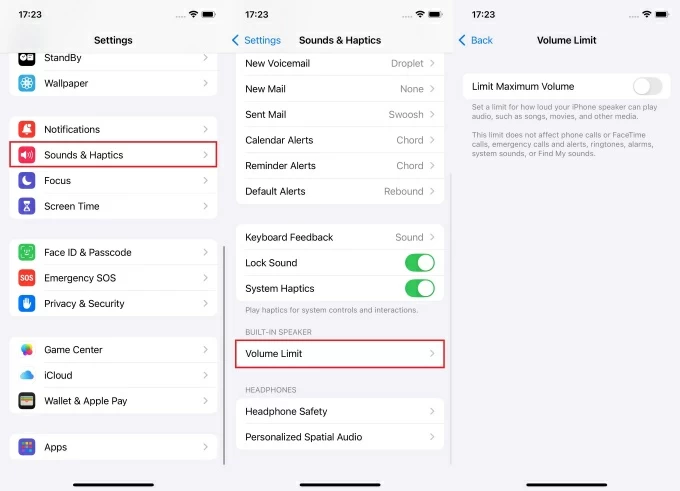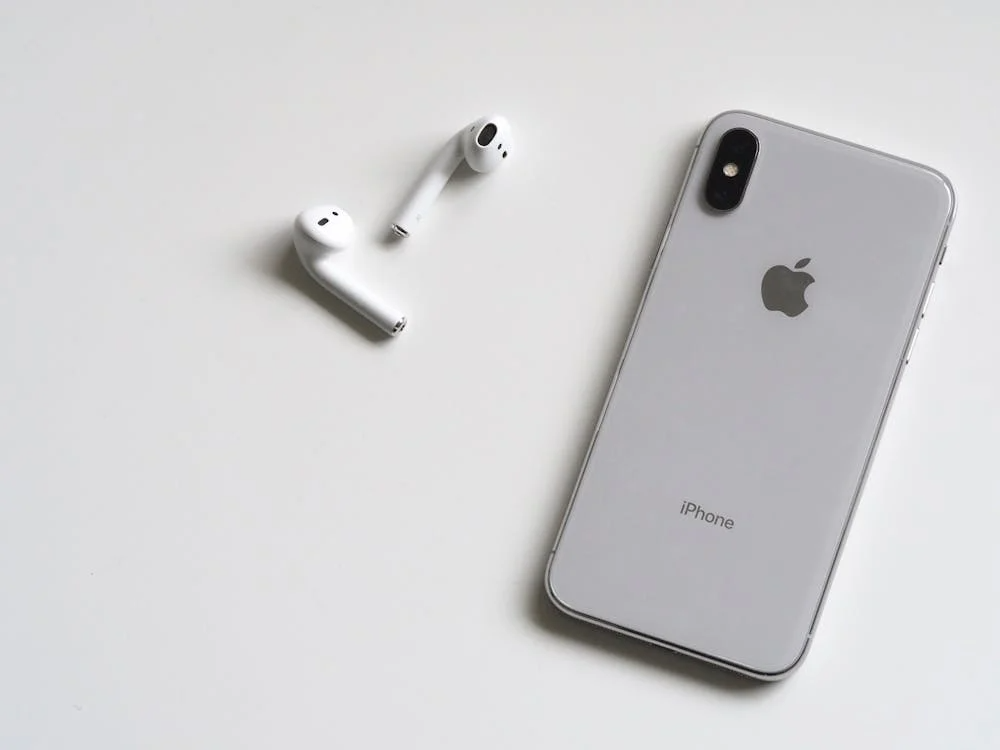Waking up can be challenging, especially for heavy sleepers. For them, scheduling multiple alarms is the only solution to wake up on time. However, the sound of alarm they choose is one of the deciding factors for their day to be productive or lazy.

Some sounds wake you up gently, while others jolt you out of bed in an unpleasant way. Waking up frustrated means your whole day is ruined. Are you also a heavy sleeper and looking for a perfect alarm sound in an iPhone that is gentle but can still wake you up?
In this article, we’ll explore different alarm tones and their impact on your mood and energy levels, helping you find the ideal one for your routine.
What Does Research Say?
Sleep inertia is a state of mind associated with temporary disorientation and cognitive impairment that occurs immediately after awakening from sleep. The severity of sleep inertia is significantly influenced by the choice of your alarm sounds.
To prove this, research was conducted on the impact of different melodies and rhythms on sleep inertia. It highlights the potential for using musical sounds as practical tools to enhance alertness. The results showed that the participants who used melodic stimuli had an improved reaction time and better cognitive performance after awakening.
Hence, using the right alarm sounds can effectively mitigate sleep inertia and help you stay energetic throughout the day.
How do Alarms Work?
The alarm clocks in iPhones are designed to wake individuals from their sleep using auditory stimuli. These stimuli activate the brain’s Reticular Activating System, which is responsible for transitioning the body from sleep to alertness by regulating wakefulness.
Depending on the type of alarm used, your mind will either react abruptly to the sound or take time to wake you up from deep sleep. Ideal alarm sounds have a frequency of around 400-500 Hz and a tempo of 100-120 beats per minute.
This allows the sound to align with the body’s natural rhythm, thus helping you wake up peacefully.
5 Best iPhone Alarm Sounds for Heavy Sleepers
Those who struggle to wake up even after setting up numerous alarms can try changing their alarm sound to a more effective one. Here are some sounds that can help heavy sleepers in waking up on time:
1. Sencha
Sencha is one of the best alarm sounds for waking you from deep sleep. Its frequency of 500 Hz is perfect for gradually activating your mind. The melody is played in Key C, which has all the natural notes. These notes are combined in various ways to make a harmonious alarm sound.
The volume of this alarm slowly rises. This helps heavy sleepers easily transition from a deep sleep phase to wakefulness, thus preventing abrupt disturbances. The impact of sleep inertia minimizes and they wake up fresh in the morning.
2. By the Seaside
How about waking up to the sound of waves crashing against the shore? Sounds relaxing, right? Well, if you are a nature lover, then “By the Seaside” can help you wake up peacefully in the morning. Its soothing music creates a serene auditory experience, making you feel you are in a tranquil beach setting.
The sound not only gently nudges heavy sleepers awake but also sets a positive mood for the day. Similar to Sencha, it also has a frequency of 500 Hz and is played in key C.
3. Uplift
Uplift is an effective choice of alarm even for the heaviest sleepers. Unlike harsh alarm sounds that can be a trigger for stress, it is a euphonious melody. Played in key C at a frequency of 500 Hz, the sound refreshes your mind and allows you to wake up gently from deep sleep.
The rhythmic beats with uplifting melodies set an optimistic tone and make the waking process more enjoyable, even for the kids.
4. Constellation
What comes to your mind when you hear the word “Constellation”? Twinkling stars make beautiful patterns in the sky, right? Staring into the night sky evokes a sense of calmness and serenity. The alarm sound with the name “Constellation” in the iPhone also has similar characteristics.
With a frequency of 500 Hz, the alarm features a series of soft chimes that will always remind you of the peaceful and quiet night sky. This imagery created by your mind will help you wake up without the jarring shock that is often associated with alarm sounds.
5. Slow Rise
As the name indicates, the “Slow Rise” alarm sound helps you rise slowly from a deep sleep and start your morning afresh. The sound has a frequency of 400 Hz and a speed of 110 bpm. Hence, it falls under the category of ideal alarms that can wake you up slowly and reduce the impact of sleep inertia.
The slow yet calming nature of this alarm stimulates the natural waking process and reduces anxiety associated with sudden loud alarms.
5 Worst iPhone Alarm Sounds for Heavy Sleepers
While some iPhone alarm sounds can prove useful in waking up heavy sleepers, others might leave them hitting the snooze button over and over. Here are the worst alarm sounds for those who struggle to wake up every morning:
1. Chimes
Chimes are pleasant alarm sounds but too gentle to rouse someone from a deep sleep. The alarm is similar to the sound of a ringing bell but very slow to hit your ears. Another drawback of this sound is its lack of urgency.
The soft tone may not penetrate the deeper stages of sleep. The thought of being late for university or the office will wake you up abruptly, making you feel disoriented throughout the day.
2. Beacon
Similar to Chimes, Beacon is also a very light alarm sound that is not strong enough to be effective for heavy sleepers. The experience may be different from one person to the other. While some people find the sound too low to hear, others might find it too sharp, causing them to wake up suddenly.
This induces stress and anxiety. Moreover, you are also going to suffer from continuous headaches throughout the day. This can slow down your work progress.
3. Radar
Radar is a popular choice of alarm among many iPhone users, but it can be very annoying. The alarm features a rapid tonal sequence with a high frequency, making the sound sensitive to the human ear. The sharp tone will rather irritate the mind than help you wake up peacefully.
It also worsens sleep inertia and contributes to negative associations with waking up. Waking up irritated and cranky will cause discomfort for both you and those around you.
4. Signal
The “Signal” alarm is not recommended for heavy sleepers due to its abrupt nature. The alarm has a series of beeping sounds that lack harmony and melodic quality. The sudden hitting of high-frequency tones on your ears will only stimulate feelings of confusion and grogginess.
It induces the feeling of lethargy. The continuous disturbance caused by alarm sounds will only make you want to sleep for more time to relax your mind. Eventually, you will wake up stressed and be late to start your day.
5. Presto
Presto has a piercing nature that can be startling rather than facilitating a smooth transition from deep sleep to wakefulness. For heavy sleepers who may be in the deeper stages of their sleep, a sudden burst of high-pitched sounds will make them feel anxious and disoriented upon waking up.
Hence, no matter how peaceful your sleep is throughout the night, you are going to wake feeling tired in the morning.
Still Hitting the Snooze Button?
Here are some tips to help you sleep better and wake up on time without dosing off again.
1. Know Your Circadian Rhythm
Our body has a natural internal clock known as a circadian rhythm that regulates the sleep-wake cycle, temperature, and other functions of the body. The pattern of sleep and alertness associated with the circadian rhythm differs for everyone. You might feel more active during certain times while lazy at others.
Understanding and knowing your circadian rhythm allows you to schedule your sleeping routine accordingly. This will help you fall asleep quickly on time and wake up fresh and energized.
2. Stick to a Consistent Sleep Schedule
If you do not have a consistent sleep schedule, you will always have trouble sleeping. Sleeping late means you will also find it difficult to wake up on time. Therefore, you must make a sleeping schedule and be consistent with the decided routine.
This helps regulate the circadian rhythm. When you sleep and wake up at the same time every day, your mind and body will adjust accordingly. As a result, you will be able to fall asleep more easily and wake up feeling refreshed. Moreover, a consistent sleeping schedule also improves the quality of sleep, allowing for more restorative rest.
3. Create a Restful Environment
According to our body’s natural clock, the body starts releasing a sleeping hormone known as melatonin in the dark. Therefore, we feel sleepy at night. Hence, the environment you sleep in matters a lot. Before sleeping, ensure that your room either has very low-intensity lights on or there is complete darkness in the room.
Moreover, the room must be quiet to prevent any noise from disrupting the circadian rhythm. Another factor that contributes to a peaceful sleeping experience is the room temperature. Maintaining a cool room temperature facilitates deeper stages of sleep, leading to enhanced mood in the morning.
4. Avoid or Limit Daytime Naps
If you want to maintain a healthy nighttime sleeping routine, you must avoid or limit daytime naps. Sleeping during the day disturbs the circadian rhythm, making it difficult to fall asleep at night. Your body may also not feel the need to rest at night, leading to poor sleep quality and long hours of tossing and turning at night.
How to limit daytime naps? Exposing yourself to natural light in the morning can help for half an hour and can help you stay alert throughout the day. Eating healthy snacks like dry fruits will keep your energy level high throughout the day.
In addition, if you still feel sleepy at any time of the day, you can go for a short walk to stretch to refresh your mind and body.
5. Try a Wakeup Light
Wake-up lights usually have soft hues like yellow, red, or orange that mimic the scene of a rising sun. You can set up a time for the light to turn on a few minutes before you want to wake up. It turns on automatically at the scheduled time and gradually increases in intensity, similar to a rising day.
It conditions the body and mind into thinking that it’s time to wake up. As the intensity of light increases, your mind transitions naturally from deep sleep to wakefulness. Hence, you can wake up on time feeling recharged without any annoying sounds irritating you.
Conclusion
Heavy sleepers typically need loud alarms to wake up. However, they wake you up suddenly, leaving you frustrated and groggy in the morning. Therefore, choosing the right alarm sound is essential.
iPhone provides a wide range of such alarms like Sencha, Constellation, Uplift, By the Seaside, and Slow Rise. They are all gentle sounds with uplifting melodies that lessen the impact of sleep inertia. Hence, you will wake up fresh and happy.
Also, avoid using sharp sounds like Chimes, Signal, Presto, or Radar, as these create a sense of emergency and induce anxiety.
If you’ve tried every alarm sound on your iPhone and still struggle waking up, maybe you should consider amplifying your alarm with a personal twist. A wireless lavalier microphone can help you record your own powerful wake-up calls or personal motivating messages, ensuring heavy sleepers never oversleep again.
Frequently Asked Questions (FAQs)
1. What is the best Apple alarm sound for heavy sleepers?
Sencha is the best Apple alarm sound for heavy sleepers due to its low frequency.
2. How to set and change alarm sounds on your iPhone?
To change alarm sounds on your iPhone, simply tap the alarms tab, then edit. Then tap the sound tab and choose your preferred alarm sound.
3. What is the most annoying iPhone alarm to wake up to?
Chimes is one of the most annoying iPhone alarms to wake up to, followed by the iPhone’s default alarm, Radar, which causes irritation and stress upon waking up.
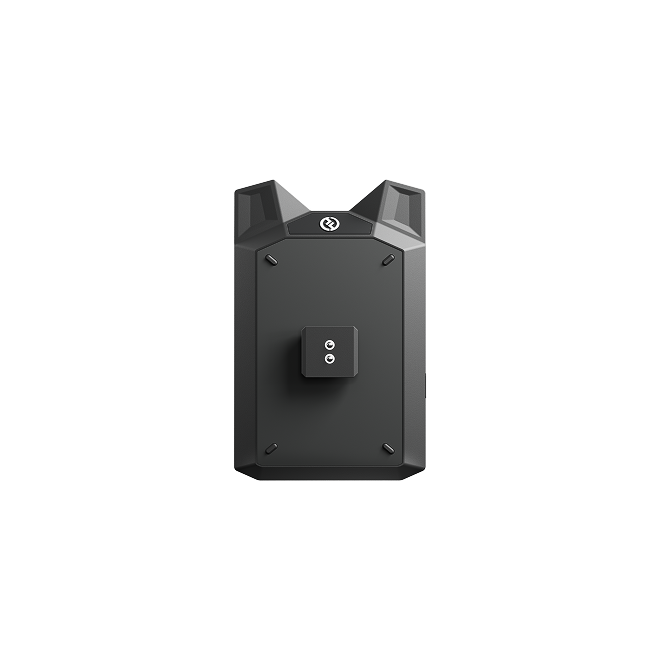

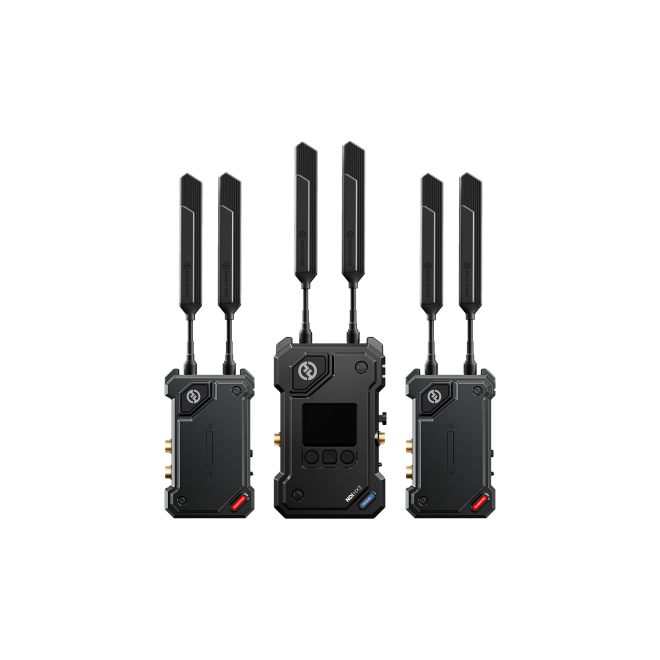
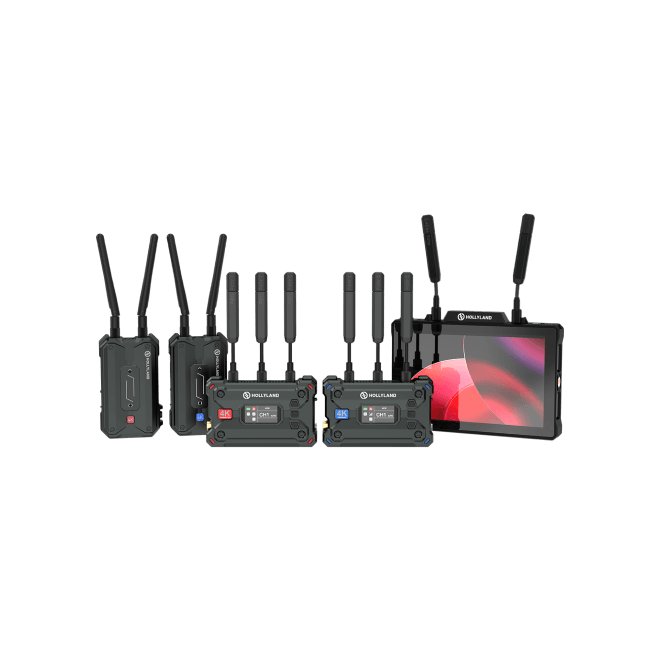

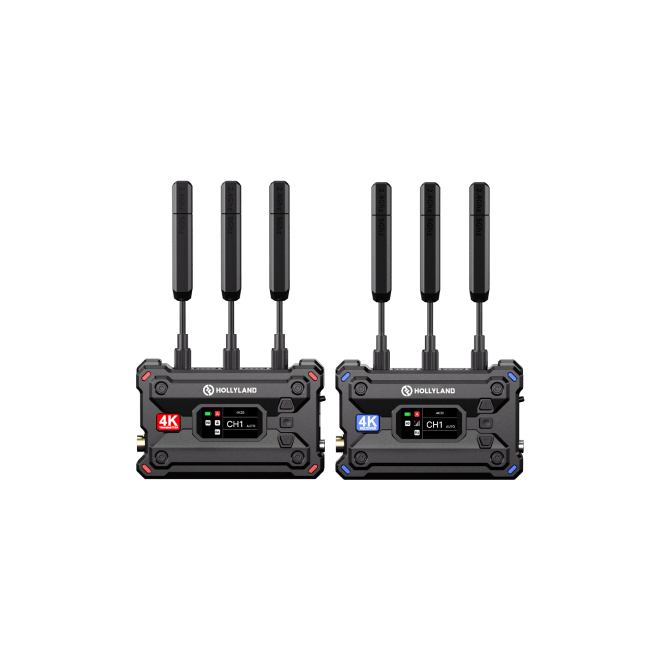
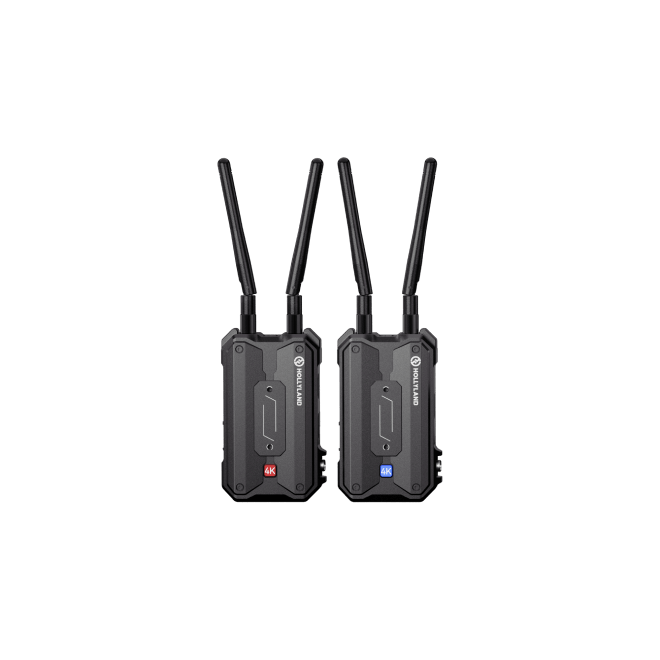
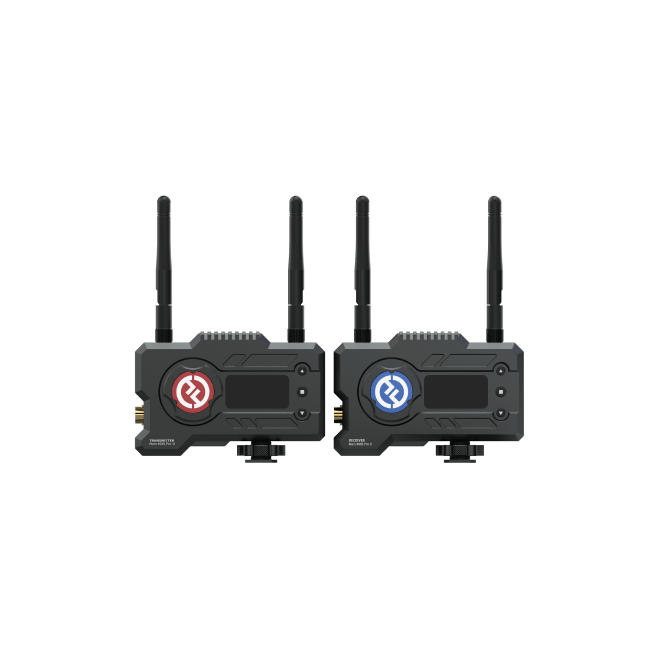

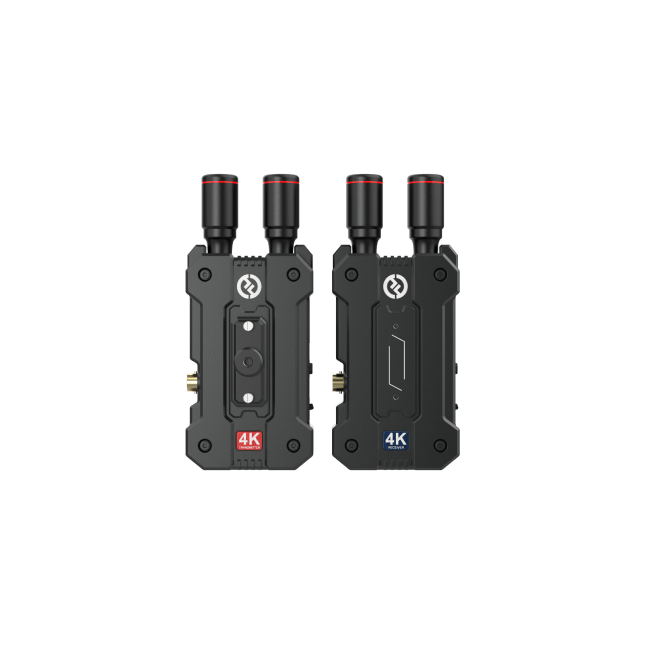
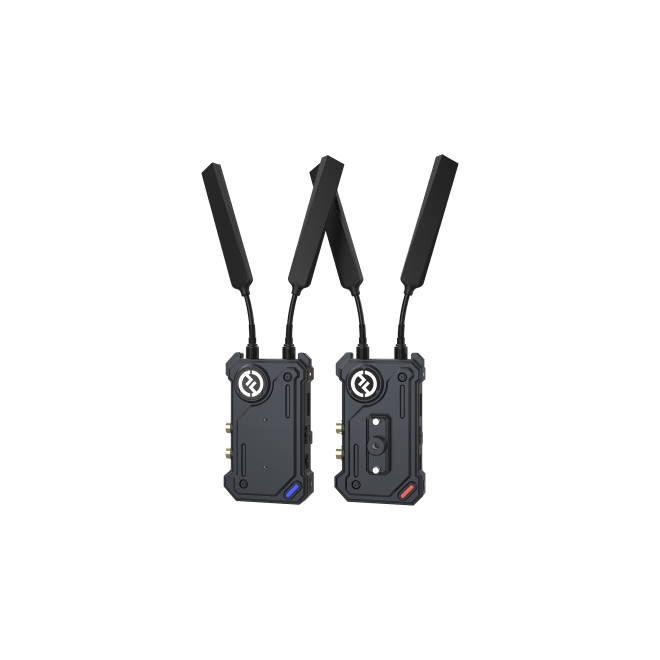
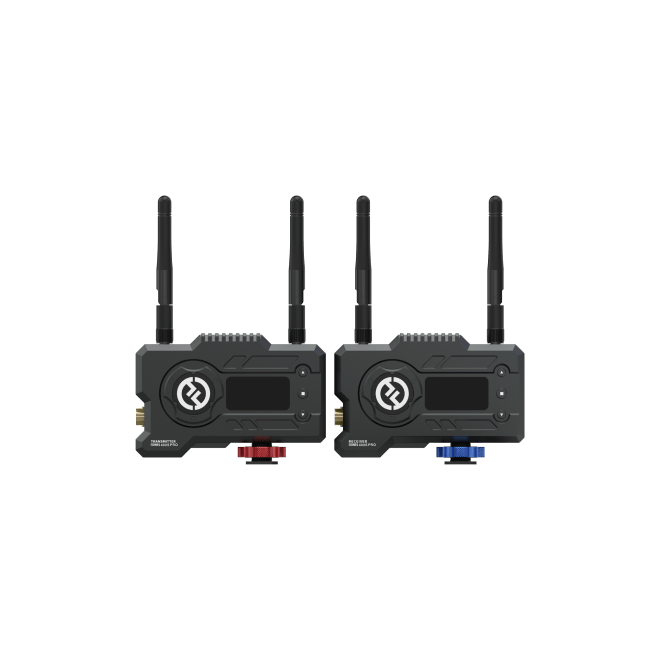
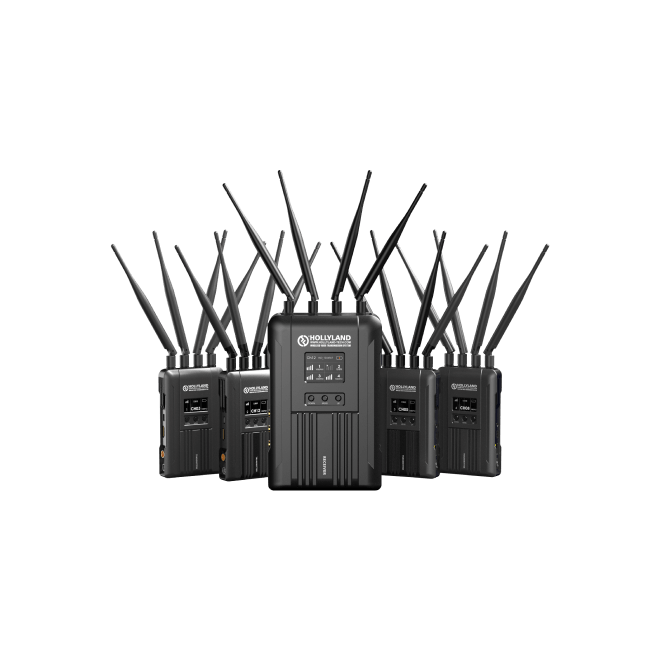

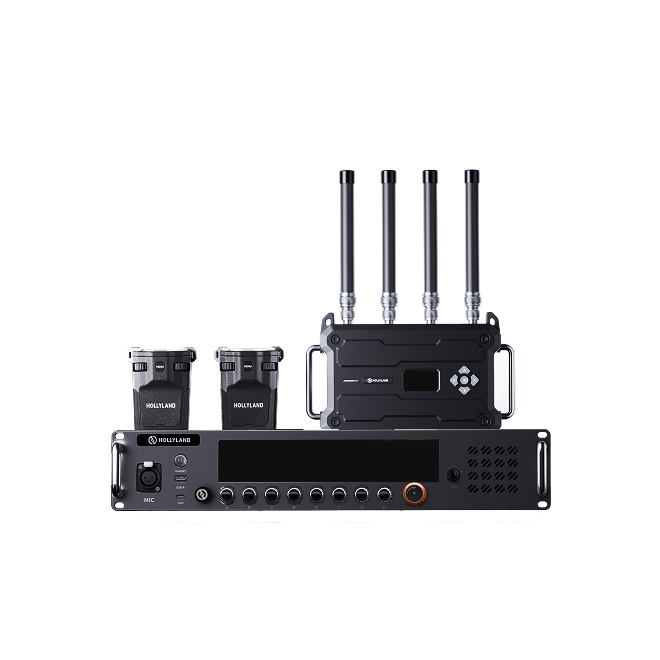

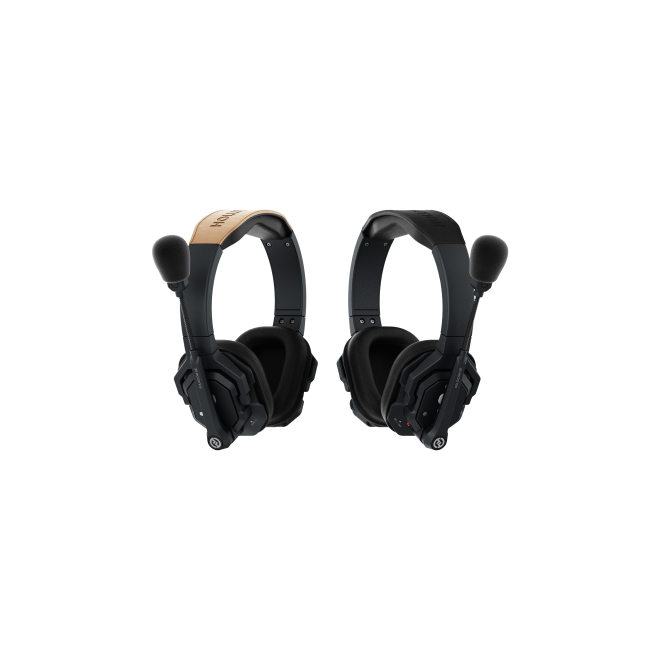

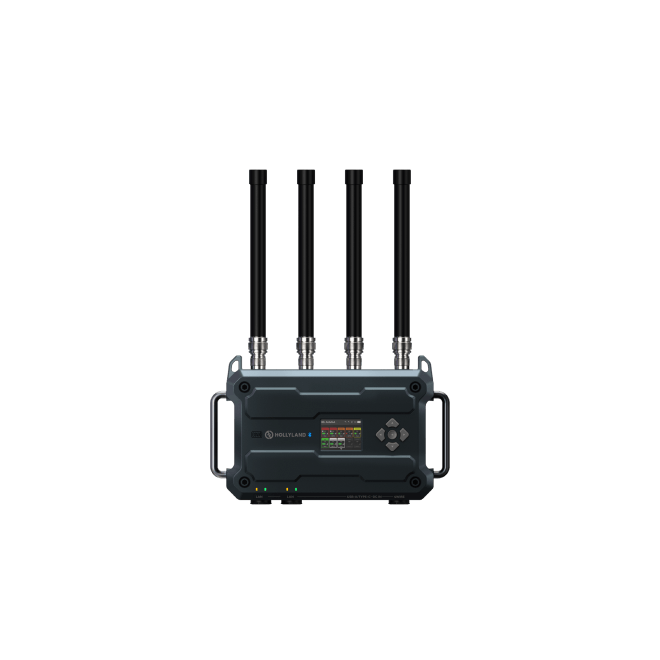
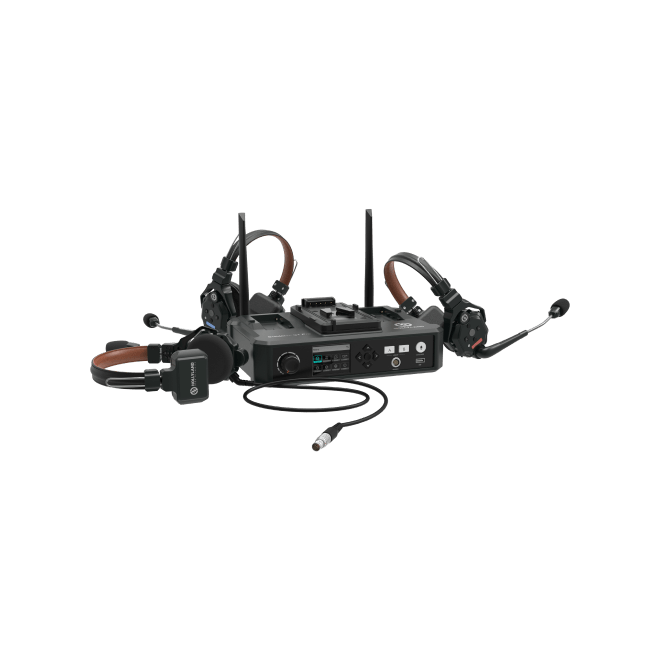
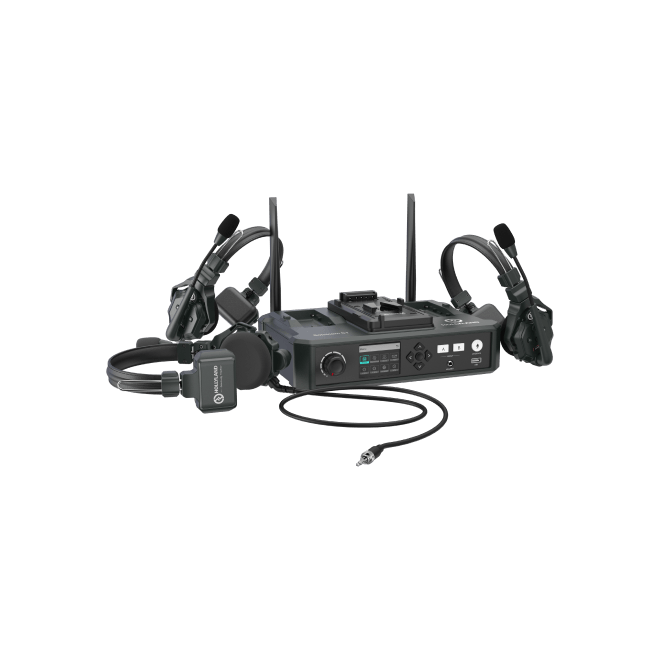
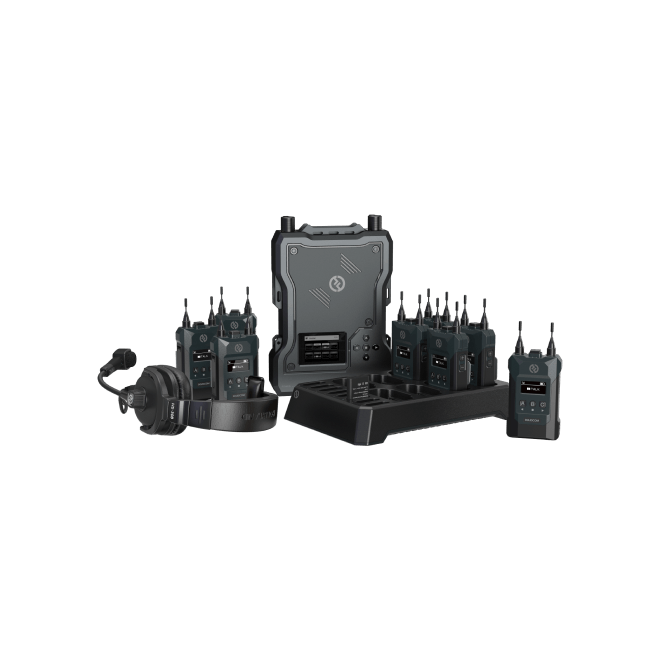
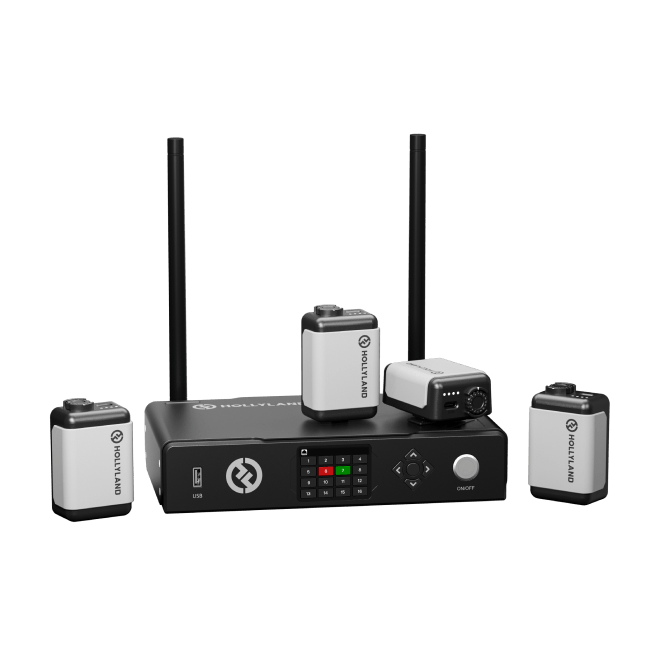
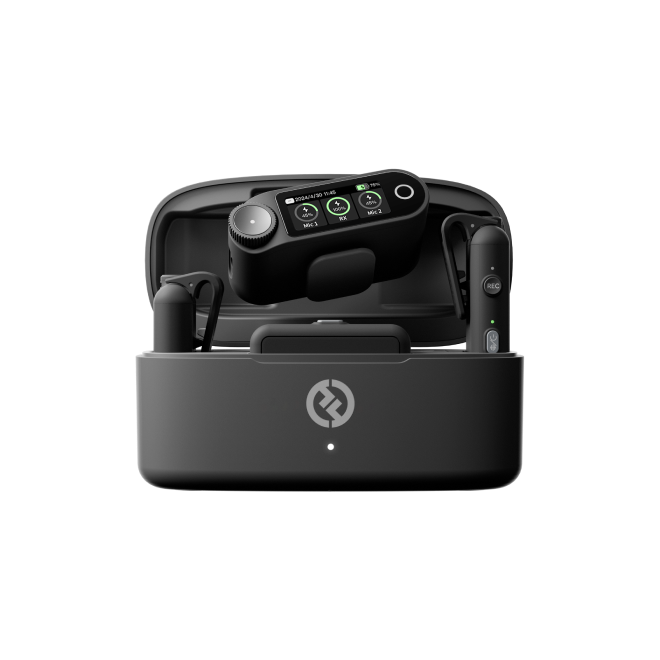
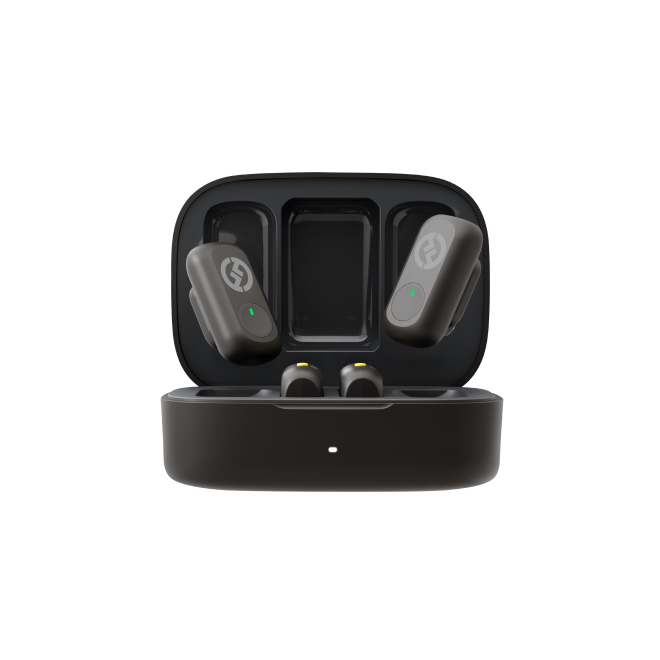

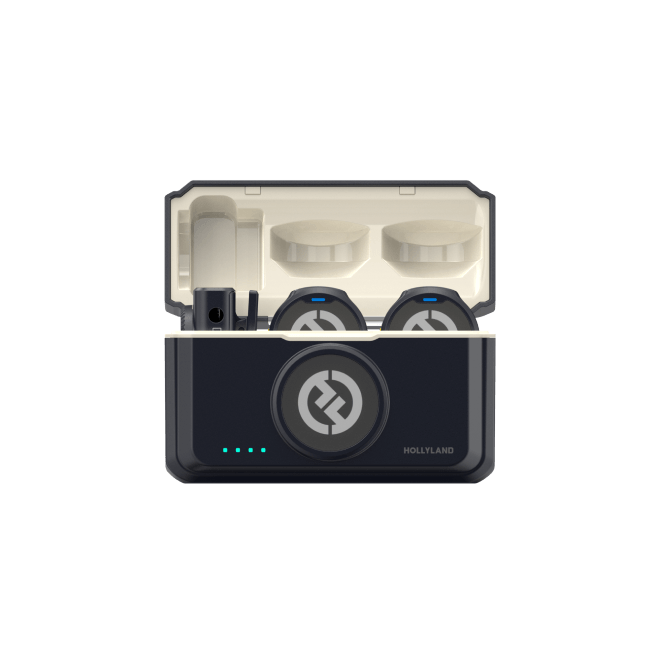
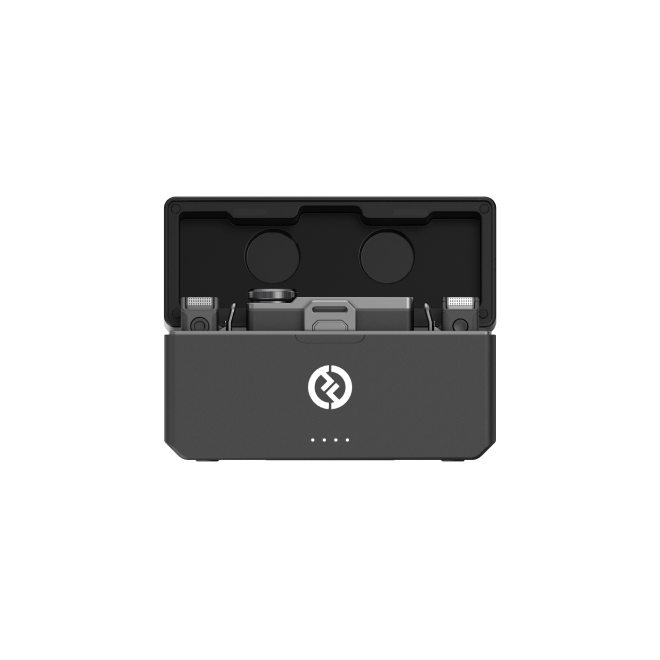
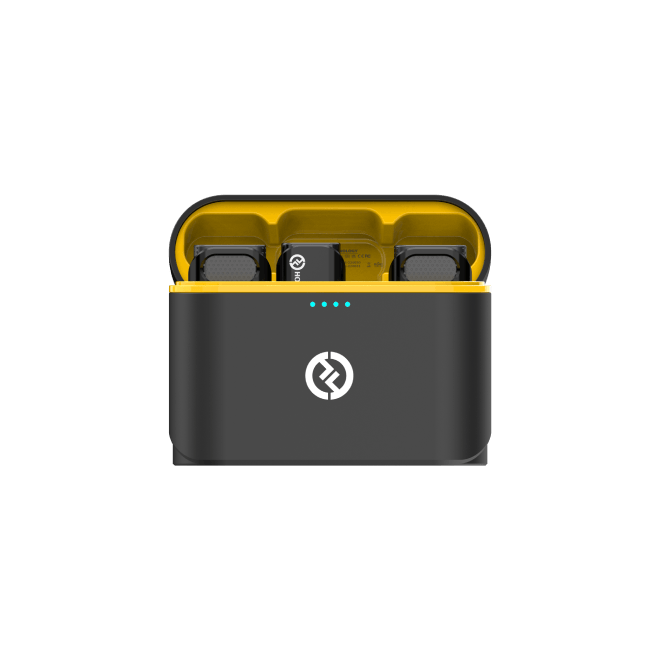
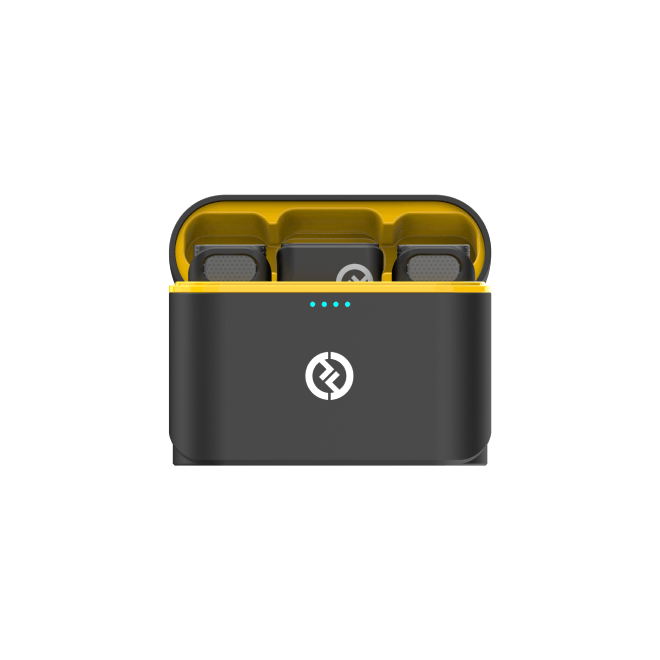
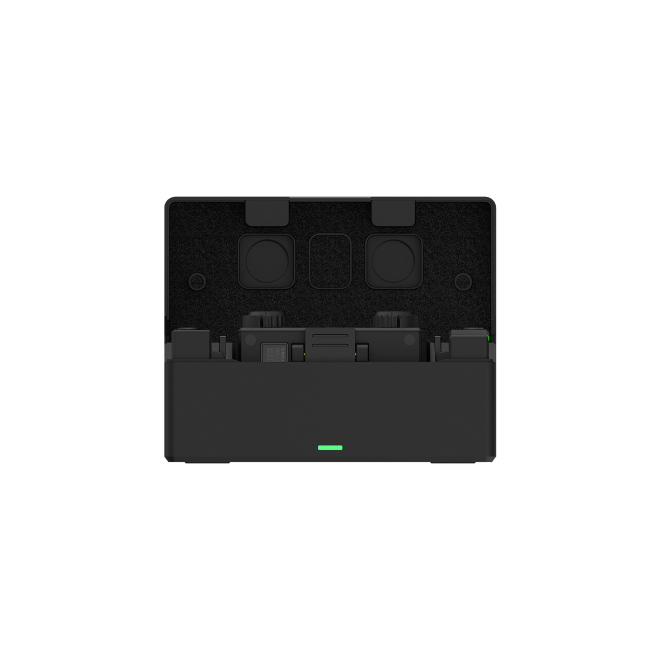
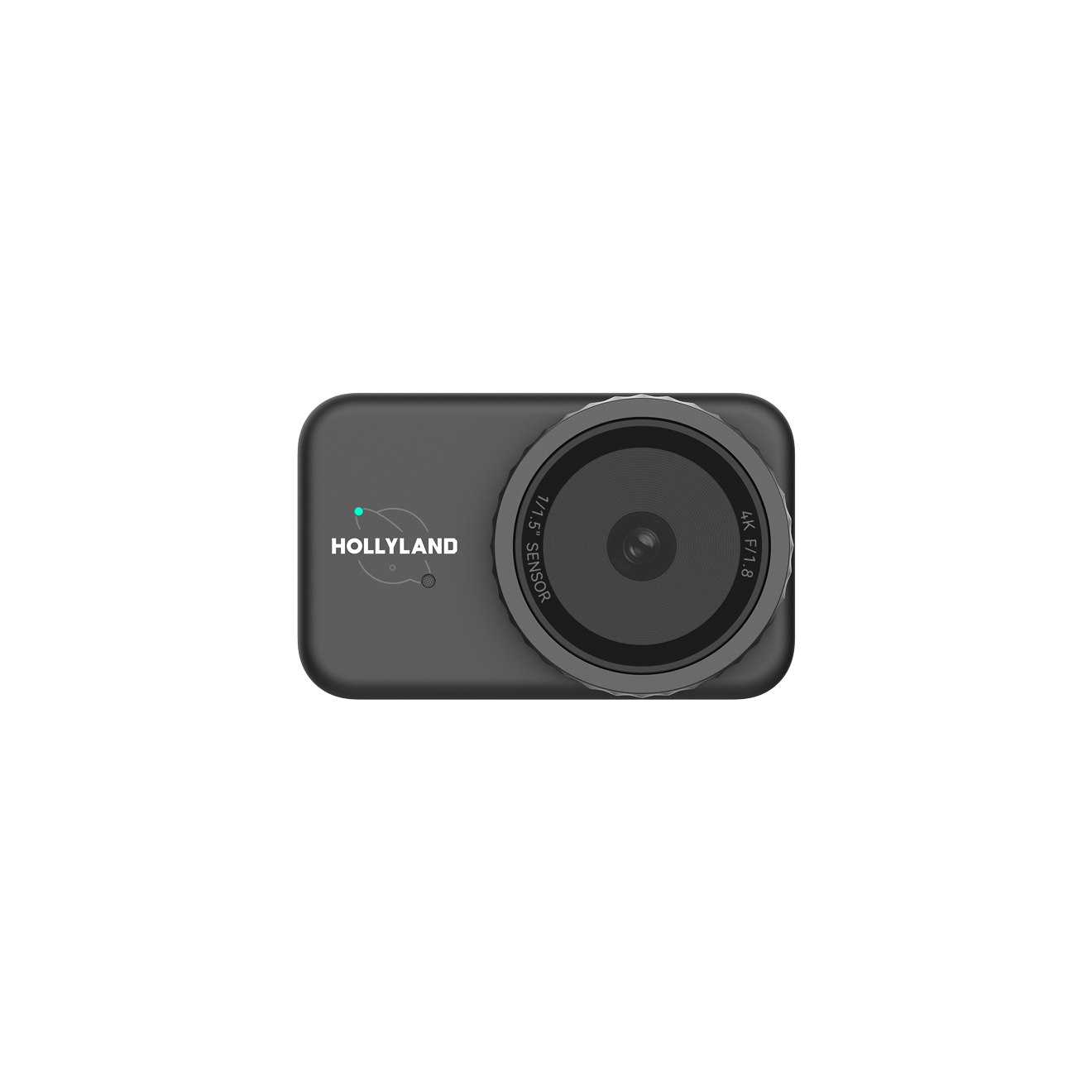


.png)
.png) Français
Français .png) Deutsch
Deutsch .png) Italiano
Italiano .png) 日本語
日本語 .png) Português
Português  Español
Español 



